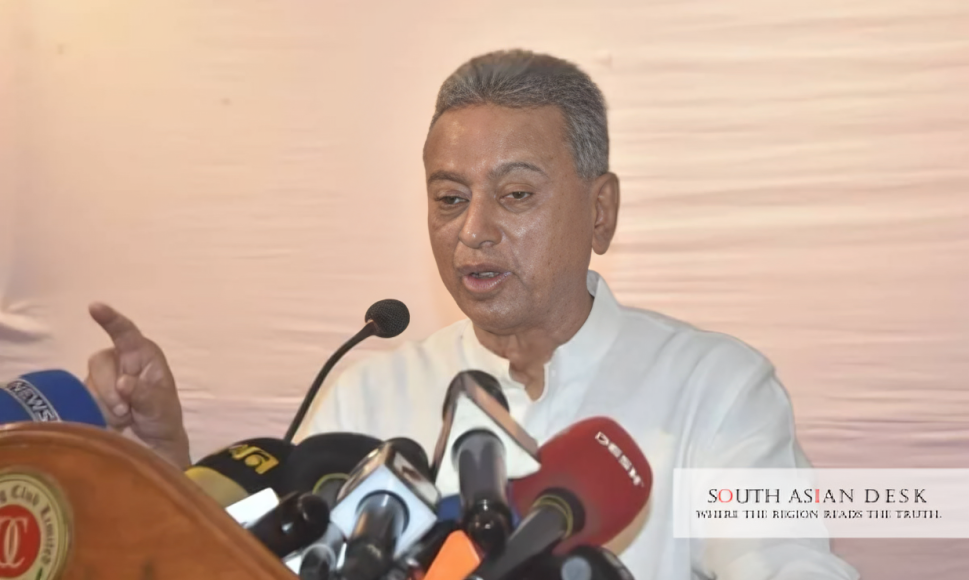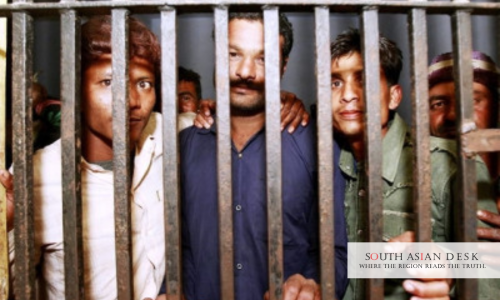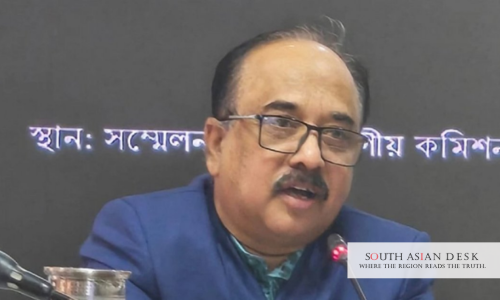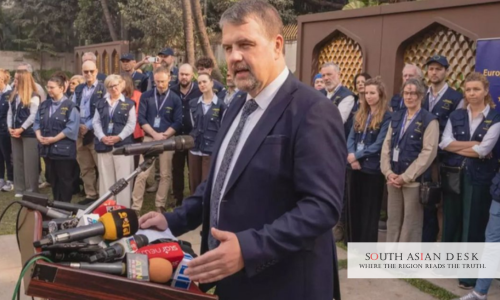The Commonwealth will deploy election observers to oversee Bangladesh’s upcoming national polls, BNP leader Amir Khasru Mahmud Chowdhury announced after a meeting with a senior delegation on Sunday. The move addresses call for transparency as the opposition pushes for a caretaker-like system.
This development signals renewed international scrutiny on Bangladesh’s electoral process, crucial for restoring trust in a nation emerging from political turmoil. In South Asia, where democratic backsliding has strained regional ties, Commonwealth election observers could bolster stability and encourage similar oversight in neighbours like Pakistan and Sri Lanka, preventing isolation and fostering cross-border cooperation on governance norms.
Amir Khasru Commonwealth Delegation Meeting Highlights Key Electoral Talks
BNP Standing Committee member Amir Khasru Mahmud Chowdhury led a party team in discussions with a five-member Commonwealth delegation at Hotel Sarina in Dhaka’s Banani area. The hour-long session, which started around 6pm on Sunday, October 27, 2025, focused on preparations for the national election slated for early next year.
The Commonwealth group, headed by Linford Andrews, adviser and head of the Electoral Support Section and Pre-Election Assessment Mission, sought insights into Bangladesh’s electoral roadmap. Amir Khasru noted the delegation’s keen interest in measures for a free and fair vote. He emphasised that the talks covered institutional strengthening and democratic transitions.
“We discussed the matter of sending Commonwealth observers. They have decided to send observers for the election,” Amir Khasru stated post-meeting. This commitment aligns with the body’s history of monitoring polls in member states to uphold standards.
The BNP side included Dr Ziauddin Haider from the Chairperson’s Advisory Council, Joint Secretary General Humayun Kabir, and Organising Secretary Shama Obaid. The encounter underscored the opposition’s proactive engagement with global bodies amid domestic preparations.
Topics ranged from law and order during voting to the Election Commission’s autonomy. Amir Khasru stressed that all poll-related decisions must stay under the Commission’s purview, free from external sway. The delegation also probed steps to build capacity in electoral bodies, sharing ideas on enhancing democratic processes.
BNP Demands Caretaker System Bangladesh Election for Neutral Oversight
Central to the Amir Khasru Commonwealth delegation meeting were BNP demands for a caretaker system Bangladesh election framework. The party advocates a neutral setup reminiscent of the pre-2011 caretaker government model, which once enjoyed consensus to bridge partisan divides.
“We discussed how an election under an arrangement similar to the caretaker system could ensure transparency and public confidence,” Amir Khasru explained. He clarified the pitch was not for reinstating the full system but capturing its essence, where the government acts in a non-partisan capacity.
This push stems from lingering trust deficits among parties. “The caretaker system was introduced to address the crisis of trust among political parties. That crisis of confidence still exists, and only a neutral framework can restore people’s faith in the electoral process,” he added.
BNP has long championed such reforms. In past cycles, including the 2024 polls it boycotted, the party cited the absence of a neutral overseer as a barrier to participation. Now, with a new charter in play, these demands gain urgency.
The July Charter, a recent reform blueprint, drew attention too. Amir Khasru informed the delegation of its broad backing, though some parties lodged dissent notes on select provisions. “Whichever party comes to power with the people’s mandate in the next parliament will implement the points on which consensus has been reached,” he said. Dissent areas would fall to the victor’s discretion, with records maintained transparently on party sites.
Such disclosures aim to foster accountability. The Commonwealth team expressed support for initiatives to fortify electoral institutions, aligning with BNP’s vision for a level field.
Background: Evolution of Electoral Reforms in Bangladesh
Bangladesh’s electoral landscape has evolved amid cycles of contention. The caretaker system, enshrined in the constitution from 1996, oversaw polls until its abolition in 2011 via the 15th Amendment. Proponents argued it curbed ruling party biases; critics saw it as enabling disruptions.
Post-2014, elections faced boycotts and violence allegations, eroding credibility. The 2018 and 2024 votes, both under incumbent-led commissions, drew international flak for irregularities. BNP’s consistent BNP demands caretaker system Bangladesh election reflect a quest for impartiality.
Recent shifts, including the July Charter, signal reform intent. Drafted post-political upheaval, it outlines consensus on governance but leaves gaps for negotiation. Official data from the Election Commission shows over 120 million eligible voters, with 42,000 polling stations planned figures that underscore the scale demanding robust monitoring.
Commonwealth involvement dates back. In 2018, Secretary-General Patricia Scotland urged inclusive polls during a Dhaka visit. Today’s pledge revives that engagement, potentially deploying dozens of observers as in prior missions.
The Amir Khasru Commonwealth delegation meeting fits this continuum. BNP’s official account confirmed the interface, highlighting democracy and elections hashtags. BSS, the state news agency, reported the session as a constructive dialogue on poll readiness.
Implications for Democratic Transition
These interactions matter beyond borders. South Asia grapples with hybrid regimes; Bangladesh’s path could inspire or caution peers. Commonwealth election observers often flag issues, prompting reforms, as seen in Guyana’s 2020 vote tweaks.
Locally, the observer deployment eases BNP concerns, potentially drawing it to the fray. Yet, implementation hinges on logistics. The Commission must coordinate with the international team, ensuring access and security.
Amir Khasru’s remarks suggest optimism. “They shared their thoughts on how to build institutional capacity for the election process and democratic transition,” he recounted. This exchange could seed training programmes for officials.
Challenges persist. Law and order remains pivotal; past polls saw clashes claiming lives. Data from prior elections indicate 95% turnout targets, but urban-rural divides complicate equity.
BNP’s stance resonates with civil society. Groups like Transparency International Bangladesh advocate neutral mechanisms to curb vote-buying, estimated at BDT 500 billion in 2018.
What’s Next: Pathways to Polling Day
As preparations accelerate, stakeholders eye consensus. The government, via the Commission, has invited inputs on the charter. BNP signals willingness to engage if neutrality prevails.
Commonwealth election observers will arrive pre-poll, assessing logistics. Their reports, post-vote, influence aid flows vital for Bangladesh’s USD 50 billion economy reliant on multilateral ties.
In the Amir Khasru Commonwealth delegation meeting, seeds of collaboration sprouted. BNP demands caretaker system Bangladesh election persist, but global eyes may nudge compromise.
The opposition vows vigilance. “We made it clear that no decision outside the Commission should influence the electoral process,” Amir Khasru affirmed.
Forward, Commonwealth election observers stand as a beacon for credible polls, potentially healing divides in this vibrant democracy.
Published in SouthAsianDesk, October 28th, 2025
Follow SouthAsianDesk on X, Instagram, and Facebook for insights on business and current affairs from across South Asia.






